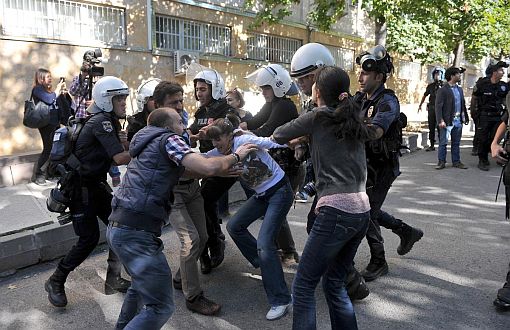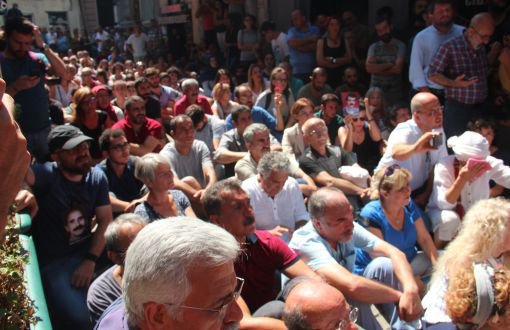“Ankara after 1980 Coup D’état”, a panel organized last Friday in Istanbul's Studio-X within its panel series called “Hidden Histories of Cities”.
Moderated by Melek Ulagay Taylan, panel speakers Murat Çelikkan from Truth Justice Memory Center, Adnan Bostancıoğlu from BirGün Newspaper and Nadire Mater from bianet focused on their witnessings of Turkey’s post-coup days in 1980.
The speakers shared their stories and told their memories with the frame of the prisoners, outsiders and women in the era of Military Coup.
Ulagay: Orhan literally disappeared
Melek Ulagay Taylan told her painter husband Orhan Taylan’s story before Murat Çelikkan spoke. Orhan Taylan was kept in a DAL - acronym for Deep Research Center in Turkish. According to researchers, those centers were utilized as secret torture cells during the era.
“They said Orhan was transferred to Ankara. It was the most horrible part of 4 and a half years. Orhan literally disappeared in this period. Finally journalist Ufuk Güldemir found my husband. He was kept in DAL. But we couldn’t learn if he was dead or alive. DAL was such a horrible place.
“After around 3 and a half months I saw Orhan on visiting day in Mamak Prison. I was shocked. He was not the man I used to see. He was skinny.
Çelikkan: Our eyes were blindfolded
Murat Çelikkan told DAL in which he was kept from 8 November to 31 December after the Military Coup. Çelikkan said that he and his four friends were detained blindfolded while they were taken from their friend’s apartment. They were taken to an unknown place.
“I thought we were in a building’s garage. But I couldn’t sort out where. They forced us to walk and beat us.
“In a place like a corridor you lean your two fingers against the wall. If your fingers cannot carry your weight you fall. And then they beat you.
“You stay in that place for a few days, totally blindfolded. You feel that some people you know are there.
“That place was used as a storeroom near Ankara General Directorate of Security. It was a place where all leftist groups were carried out an operation and investigated. Now it has been a shopping mall.
“Nobody knows where you are”
“After some time you are taken to the narrow cells. They torture people in these interrogation rooms. You wait for your turn.
“I stayed in that place until 31 December. Because detention period lasts 90 days with the help of legal decision. When you are in cell, it is more protective. But you are with 7 or 8 people and it is impossible to breath. I still remember those sweat stains on the iron door.
“Nobody knows where he is. You are not under detention. The place in unknown. You are in a danger that it is uncertain which will come over. All kinds of torturing and interrogation of the country were there.
Murat Çelikkan told the officials of DAL and Mamak Military Prison were promoted later. Governors, Deputies and Regional Governors of the State of Emergency (OHAL) are amongst them. Çelikkan drew attention to the continuity of the state.
Terror used to begin in the “cage”
“I was taken from Ankara Police Station on 31 December. After a day we were sent to Mamak Military Prison. We talked about the terror and oppression place, Mamak. I thought ‘what kind of worse things can happen?’ Çelikkan said lastly.
Adnan Bostancıoğlu told his story from Mamak Military Prison:
“The place called ‘cage’ was at the entering of Block A. People are taken to that place first and the terror begins. The first place that you meet military discipline. You call everyone commander. Standing at attention, putting your hands both sides, looking up the sky… If you don’t obey, you are beaten.
“You are beaten in the shuttle bus while you are taken from the cage to the cell. İlhan Erdost (a Turkish publisher) lost his life in that shuttle bus.
Counting, training, beating
“After Military Coup the leftists and the rightist started to stay in the same cells. Two people were chosen as ward senior and assistant amongst the leftists and the rightists. It was the sole relationship between the revolutionists and the fascists. They were in a relationship only on the subject of sharing the food and the bed. In the daily life the revolutionists and fascists didn’t salute each other.
“The daily routine was like these: getting up at 7 o’clock, soup for the breakfast most of the time. You parade in the block’s garden and count from the right side after the ‘commander’ said ‘count’. They forced us to count in the loudest way. We tried not to count loudly. The fascists were counting in the loudest way. Sergeant picked up the people who shouted in a low tone. The ones who weren’t picked up entered the cells. The other ones were struck with a truncheon.”
“Training comes after the counting. You have to march like soldiers. You don’t want to obey them. There is always a reason for beating. You sing military anthems in the training.
“Lunch time comes after the training. It is a limited time. There aren’t enough tables. You eat your lunch in groups of 15 people. People used to eat fast. I still eat very fast.
Beating twice in a day
“You line up in front of the bunk in ward and walk where you are. A soldier is looking from the loophole. In the evening you go outside and sign National Anthem and then return. After supper, there is the evening counting like morning counting. Beating twice a day is guaranteed.
“Theoretic training comes after the evening counting. An inmate reads loudly the books like Atatürk’s Principles. Never mind the principles. The peeping soldier asks whoever he likes to: Recite the 7th stanza of National Anthem!”
“On exceptional circumstances they were searching us. They would take you out and throw all the beds amongst the ward and pour our laundries and food on it. For instance it happens at 3 am. They say you will be ready at 8 o’clock in the morning. You have to clean up all the mess and be ready for the counting in the morning. It happens this way.
Mater: Women outside the bars
“Well, and there were women. They were treated in the same way. Women resisted most in Mamak Military Prison,” Adnan Bostancıoğlu concluded.
From there, Nadire Mater continued her story:
“Visiting periods was 5 minutes. However, according to the initiative of the guardian it could last 2 and a half min. You go the prison visiting by bus from far away. Under the unbearable sun of summer, under the unbearable cold of winter, you wait for 5 or 6 hours in front of the prison. Your visiting time comes and you remark a word or two to your friends and then return. There is a glass between you. Two soldiers in each shoulder of your inmate friend. You cannot talk in private.
“Women were outside of the prison doors. In their 20s, 30s and even 50s… The elder ones tried to protect us while we were trying to tell the world about Mamak Military Prison. They would meet and talk to generals personally. The elder ones thought that the junta could harm and arrest us, the young ones easily.”
"A horrible solitude"
“Ankara was one of my favorite cities before 1980 Military Coup. Now as soon as I arrive in Ankara I want to run away. Ankara held the image of the whole country beside the military coup.
“The dictatorship condemns the human to a horrible loneliness. It means you must rearrange your relationship between you and your friends/neighborhood. You cannot call your friend, cannot express your idea, you suppress your anger and depression, you seem like resisting, giving attention to your every step, suspecting every one. Soon it casts shadow upon your feeling of trust. And you become a liar.
“You lie too much that when they discover your lie, you feel ashamed. You fear and panic.”
“You search for the ways of transmitting the incidents occurring in Military Prisons and all over the country to the world. You meet foreigner journalist in a great secret and slip little notes into their hands.”
The comradeship of women
“You wonder about the decisions of your organization. Even if there are decisions, they cannot reach you. You go your male friends to learn.
“There was a Coup D’état in Turkey. Dying, being tortured, imprisonment, being an outsider and finally going out from the country. The identities of comrade women were erased. They gained new identities immediately like “waiting for the inmate”, “the wife of the inmate”, “Mamak Family”, “Diyarbakır (a southeastern city of Turkey) Family” and Metris (a prison in European side of İstanbul) Family…
“30-35 years passed. We still try to tell that ‘We were there’ like the examples of the year 1968. A lot of books are written on this subject. They ask “What about women?” in biographical interviews. Fortunately, they tell about women in a half page in their books. Briefly, the gender of the organizations was ‘male’.
“However, both mothers and their children became political. Melahat Sarptunalı, one of the founders of Human Rights Association and a mother of an inmate said that she didn’t carry her house keys with her anymore. Women are outside while their husbands wait in home.”
“The panel series ‘Hidden Histories of Cities’ are being held by the exhibition ‘Compressed: Guantánamo. The first panel will be held in Diyarbakır Prison. The next panel will be organized on 25 April with the title ‘The lost city of Armenians: Istanbul’. (BK/BD/BM)
* Click here to read the article in Turkish.





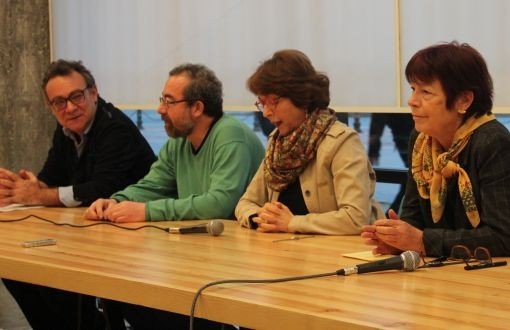

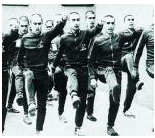
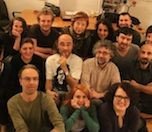

.jpg)
.jpg)
